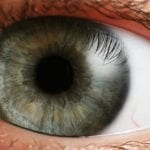An American student has won the European Patent Office’s (EPO) inaugural Young Inventors award. The award was handed out alongside the European Inventor award to acknowledge the accomplishments of younger inventors under the age of 30.

Twenty-two-year-old Stanford student Erin Smith was one of two recipients of this year’s award, which comes with a cash prize of EUR 20,000 (or roughly $21,000 USD). Smith is the inventor of a new app that uses computer vision technology to analyze facial expressions and watch for potential signs of Parkinson’s disease in a video. Researchers have previously noted that Parkinson’s can start affecting the muscles in someone’s face as early as 10 years before it starts affecting their broader motor function. Smith’s tool can track those minute changes in expression, and can therefore be used to diagnose Parkinson’s much earlier than was previously possible.
As is often the case, an early diagnosis allows doctors to start a treatment plan sooner, which can in turn delay the onset of more debilitating symptoms. Smith’s app can detect Parkinson’s with 95 percent accuracy, and achieves an almost-as-strong 93 percent accuracy when asked to identify certain other neural disorders. The latter figure indicates that the app can be used to diagnose other diseases beyond just Parkinson’s alone.
“I remember the first moment where the first algorithm actually worked and that that was magical to see,” said Smith. “It’s incredibly exciting to see this idea I had back in high school in my kitchen, turn into a tangible technology that has the potential to create a positive impact in the world and improve the care of Parkinson’s disease.”
The Young Inventors award is intended to recognize breakthroughs that advance the United Nations’ Sustainable Development Goals. The other prize went to the UK team of Victor Dewulf and Peter Hedley, who are developing new recycling solutions.
Researchers from FDNA and the University of Bonn have tried to use face biometrics to diagnose rare genetic disorders, while researchers from Okayama University have marked the relationship between Parkinson’s and the muscles of the face. Doctors have also started using wearable devices to try to restore some motor function in Parkinson’s patients.
–
June 21, 2022 – by Eric Weiss







Follow Us